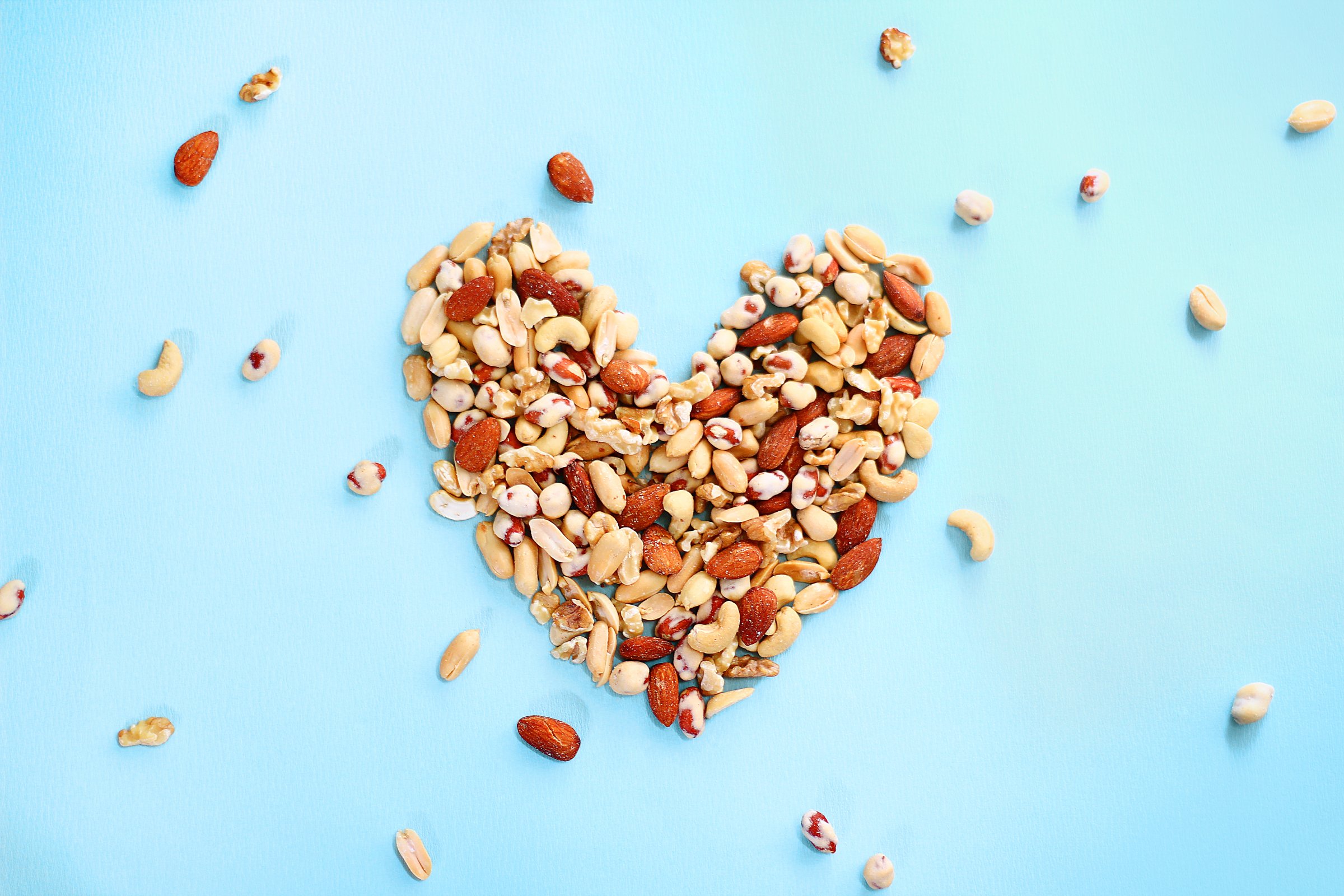
By now you know the basics of keeping your heart in shape: You’re all over the Mediterranean diet and you do that cardio. But thanks to conflicting headlines running amok, the details get confusing: Should I take aspirin? How hard do I really need to work out? That’s why we went to leading cardiologists and asked them to level with us about what heart-health habits women absolutely need. Check out their straight-up answers.
Skip food fads
“So many trends come and go. A gluten-free diet is not worth your time unless you have celiac disease or a real gluten sensitivity. If you’re considering Paleo, forget it! It’s not heart-healthy to bypass beans, legumes or whole grains (which are proven to lower cholesterol and stabilize blood sugar).” — Suzanne Steinbaum, DO, director of women’s heart health at Lenox Hill Hospital in New York City and author of Dr. Suzanne Steinbaum’s Heart Book
Eat better fish
“The American Heart Association recommends eating fish twice a week, but that doesn’t mean just anything from the ocean. Fish like tilapia or orange roughy contain basically zero omega-3 fatty acids, which lower triglycerides and inflammation. And shrimp and lobster—they’re not even fish! Eat salmon, herring, tuna and anchovies. They have the highest levels of omega-3s.” — Leslie Cho, MD, director of the Women’s Cardiovascular Center at the Cleveland Clinic
Quit worrying about salt
“The long-standing salt limit is 1,500 milligrams a day, but some studies show that blood pressure rises only when salt intake tops 3,500 mg daily. If your kidneys are healthy, you probably don’t need to cut all added salt from your diet. Instead, avoid processed foods, which are real sodium bombs.” — Holly Andersen, MD, director of education and outreach for the Ronald O. Perelman Heart Institute at the New York-Presbyterian Hospital
HEALTH.COM: 18 Superfoods for Your Heart
Pass on the Aspirin
“Despite all the studies about aspirin’s heart benefits, it’s not for everyone. The term baby aspirin makes it seem benign—like, “Babies take it!”—but one danger is bleeding. If you’re under 65 with no risk factors, daily aspirin is not helpful.” — Dr. Cho
Find your happy place
“Chronic daily stress ups blood pressure and can lead to depression and anxiety. Have dinner with your girlfriends or listen to music. I use apps: Happify, which has daily gratitude activities, is a good one.” — Stacey Rosen, MD, vice president of women’s health at the Katz Institute for Women’s Health, North Shore-LIJ Health System
Say no to sugar
“We cardiologists pushed everyone to eat low-fat, and as a result, food manufacturers have added more sugar to things like crackers and cereals. When you eat too much sugar, your body may stop getting the message to feel full. Focus on protein and healthy fats instead of refined carbs.” — Dr. Andersen
HEALTH.COM: Heart Attack Symptoms You Should Never Ignore
Pay attention to your pregnancies
“Most women don’t know this, but your pregnancies can tell you a lot about your future heart risk. Since your blood volume rises so much (blood flow just to the uterus increases eightfold), pregnancy is like a stress test. If you had pregnancy-related high blood pressure, pre-eclampsia or gestational diabetes, you’re at greater risk as you age.” — Chrisandra Shufelt, MD, associate director of the Barbra Streisand Women’s Heart Center at the Cedars-Sinai Heart Institute in Los Angeles
Build muscles
“Strength training revs your metabolic rate, so you burn more calories at rest. This may keep blood pressure and cholesterol levels low and helps prevent metabolic syndrome, a major risk factor for heart disease. Use weights or your own body: I have a 15-minute daily routine that includes planks, sit-ups and push-ups. ” — Dr. Steinbaum
Laugh it up
“Laughter is huge. Fifteen minutes of laughter is equivalent to 30 minutes of aerobic activity in terms of what it can do for cardiovascular health.” — Dr. Andersen
HEALTH.COM: 15 Diseases Doctors Often Get Wrong
Don’t go to bed angry
“Studies show that a healthy marriage decreases heart disease risk. When you have problems with your husband, that stress you feel is the inflammatory markers going up. The longer you let it bother you, the worse it gets for your heart. Maintaining a stable, happy relationship really matters.” — Dr. Steinbaum
Don’t turn to hormones
“It’s true that heart risk goes way up once estrogen starts to drop as women age; estrogen helps maintain the flexibility of our arteries and helps keep our LDL (bad) cholesterol low. But studies show that adding synthetic estrogen doesn’t work the same way. You can use hormone therapy in the short term to help with menopause symptoms — but it won’t protect your heart.” — Nieca Goldberg, MD, medical director of the Joan H. Tisch Center for Women’s Health at the NYU Langone Medical Center
Go nuts for nuts
“I snack on walnuts, almonds, pecans and more. They help increase HDL (good) cholesterol, and people who eat nuts seem to live longer with less disease. I proportion them in baggies (about a quarter-cup scoop each) so when I get hungry, I won’t eat the doughnuts people bring to the office.” — Dr. Andersen
HEALTH.COM: 14 Reasons You’re Tired All the Time
Just move already
“Whatever exercise you can do consistently is the best exercise for your heart. Have fun with it. Boosting intensity is always great, but work up to it or you may burn out or get hurt. ” — Dr. Cho
Put your job second
“Women who say their jobs are stressful are more likely to die of heart disease. But so much of the pressure we feel is actually self-imposed. There’s nothing wrong with wanting to do well at work, but most people aren’t going to get fired for eating lunch away from their desks. So do it: Get out of the office to eat, take a break when you need one, go home on time. Don’t let your job steal your health.” — Dr. Andersen
Cheers to your heart
There’s no magic elixir for a healthy life, but that’s not to say that your drink can’t affect your ticker. Here’s your beverage update.
HEALTH.COM: 15 Signs You May Have an Iron Deficiency
Good
Green tea: For every extra cup you sip a day, you may reduce your coronary artery disease risk by 10 percent, according to a recent review. Brew your own for best results.
Coffee: Jacking up your java by at least a cup a day may lower your risk of type 2 diabetes (which raises your heart risk), per a new study.
Bad
Energy drinks: A 2014 study linked guzzling energy drinks with angina (chest pain), irregular heartbeat and death. One can is OK, but why not choose espresso instead?
Soda: A 12-ounce can is your entire daily sugar limit—and then some! Overdoing it on sweets raises triglycerides and may reduce HDL (good) cholesterol.
It’s Complicated
Wine: Unwinding with a glass of red or white vino can protect against cardiovascular disease—but only if you also exercise, according to a 2014 Czech study. The wine-drinking participants who experienced a rise in levels of good cholesterol were those who worked their bodies at least two times a week.
More Must-Reads from TIME
- Inside Elon Musk’s War on Washington
- Meet the 2025 Women of the Year
- The Harsh Truth About Disability Inclusion
- Why Do More Young Adults Have Cancer?
- Colman Domingo Leads With Radical Love
- How to Get Better at Doing Things Alone
- Cecily Strong on Goober the Clown
- Column: The Rise of America’s Broligarchy
Contact us at letters@time.com



